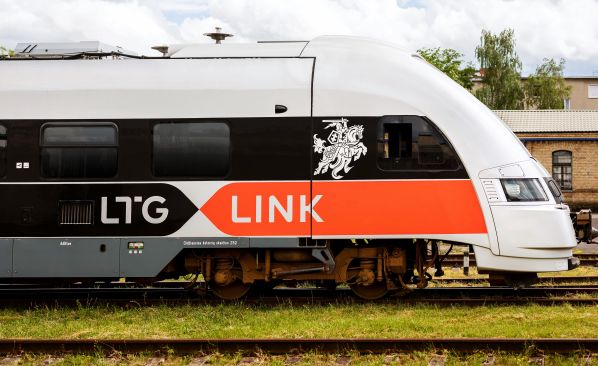SURPRISING as it may seem, given the three Baltic states’ shared history and close collaboration on the Rail Baltica project, it has not been possible to take a train between the Latvian capital of Riga and the Lithuanian capital of Vilnius during the countries’ three decades of independence.
Until now, that is, as LTG Link, the passenger subsidiary of Lithuanian Railways (LTG), has announced that it will such a service on December 27. LTG Link will introduce one round trip per day. The train will run from Vilnius to Riga in the morning, departing at 06.30 and arriving in Riga at 10.43. The afternoon return service will depart Riga 15.38 and arrive in Vilnius at 19.51.
The trains will call at Kaišadorys, Šiauļiai, Jonišķos and Jelgava. In Kaišadorē there will be a connection to Lithuania’s second city Kaunas.
Tickets for the launch day sold out in 10 minutes after they went on sale on December 18, and tickets for subsequent dates have also been selling out rapidly, LTG told Jauns. Second class tickets will set travellers back €24, and first class will cost €34.
The idea of a direct route between Vilnius, Riga, and the Estonian capital Tallinn was launched in September 2021 by the three Baltic states’ ministers at the time, together with representatives of the railway industry and the European Commission. This came after a successful test run between the three capitals to celebrate the Year of European Railways that year, and subsequently, the three governments have formally agreed to launch one, but there have still been political hurdles to clear.
“It is a fairly regulated system, and unfortunately there is no single market in Europe in this area,” Lithuania’s transport minister Mr Marius Skuodis observed in August.
“We hope that in the future it will be extended to Tallinn [the Estonian capital] and that the construction of Rail Baltica will make travelling to our neighbours even faster and more comfortable," says Ms Loreta Maskaliovienė, Lithuania’s deputy minister of transport.
The new service will be operated by a 1520mm-gauge Pesa 730 ML DMU which will be able to accommodate 142 passengers each. The train will also provide facilities for the disabled as well as space for bicycles.
The journey will take around 4h 15min, although the Lithuanian government expects the time to be cut in half once the standard-gauge Rail Baltica project is completed.

